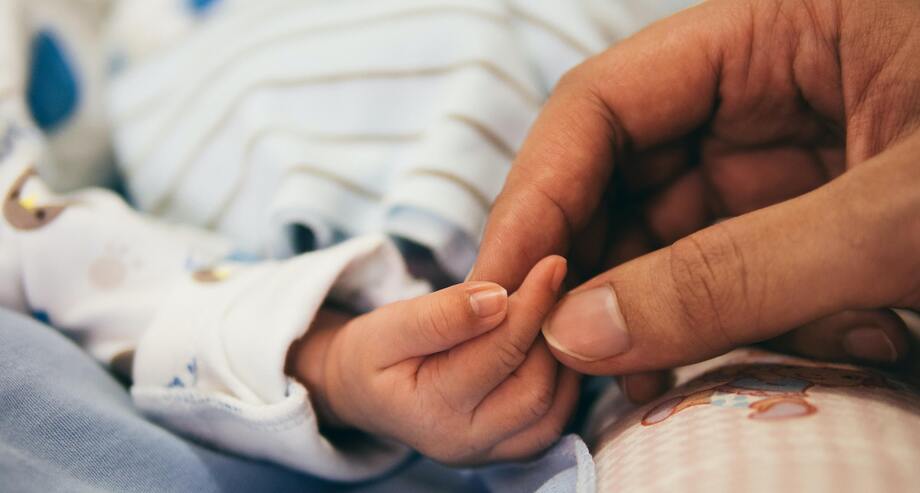









Ricardo Martino is the Chief of the Pediatric Palliative Care Section of the Hospital Infantil Niño Jesús. He is a Doctor of Medicine, specialized in Pediatrics and promoter of various projects to raise awareness of palliative care. For all these reasons, he is an advisor to the Ministry of Health on these matters. In Omnes he has spoken about the implications of illness in children, the impact on families and the presence of God in critical situations such as these.


It is hard to see children's innocence wounded by illness, to the point that the little ones end up in palliative care. How does one cope with such a reality?
- For a family it is the worst thing that can happen. In fact, there is no term in Spanish that describes the permanent state of the loss of a child. One can be a widower or an orphan, but, until now, we have not put words to this fact. This fact bursts into the life of a child and truncates his or her future, or the future we thought he or she had.
An illness is not a reality that affects only the patient, the whole family suffers with the children. How do you take care of all the members of the family?
- The life of the whole family is affected. Parents see their marital life altered, they may also lose their jobs because of the child's care; siblings take second place and lose prominence, grandparents suffer and become involved in everyone's care... We care for the child and teach the family how to provide the care they need. We also help them to cope and support them after the death. This requires a team that includes doctors, nurses, social workers, psychologists, spiritual companions, pharmacists, physiotherapists....
Can God be found amidst so much suffering?
- All people have a spiritual dimension. Facing death or the death of a child or a sibling touches the whole person. The spiritual helps in coping. People who have faith have more resources to accept the situation. God is present, even if at times He is "angry" about what has happened. Often we find the gentleness of a provident and merciful God in the way events occur and in the peace of heart that many families experience at the death of their own child.
How do you tell children and their families about a good Father?
- The most important are the "experiences of the good" that children have, even before they are able to understand the religious fact or the person of God. Being loved, forgiven, celebrated... These are experiences that can be had at any age and that constitute the necessary substratum to be able to understand the action of God as a good Father.
Is there spiritual comfort for children and their families in such situations? complicated?
- There is comfort if there is acceptance. And acceptance does not presuppose understanding. If it is understood it helps, but this is very difficult to understand. What you can do is to accept even if you do not understand. To make a healthy mourning it is necessary to work on coping and acceptance.
In addition to highly specialized medical care, what do children in palliative care need most? And what do family members need most?
- They need to be considered and treated as people. In this way, what is important to them, beyond the disease itself, is taken into account. The good of the person is above what happens to them because of their illness. Moreover, what is good for the patient changes over time according to the evolution of his disease, his limitations, his expectations and his chances of responding to treatment. Family members also need to be welcomed, accepted and accompanied by professionals, who act without prejudice and try to take into account what is important to them, as long as it does not override the good of the child.
How many children in Spain are in need of palliative care? Do you think that the public administrations are investing enough to meet the needs of so many children?
- In Spain there are 25,000 children in need of palliative care. More than 80% do not receive them. But today there is no equity in the provision of care. It depends on where you live and the disease they have. And this despite the fact that, at least since 2014, the recommendations of the Ministry of Health regarding what to do are clear.
How is the situation of pediatric palliative care in Spain compared to Europe?
- On the one hand, it is not bad because there are more and more teams that are gradually being set up, especially because of the motivation and commitment of the professionals. On the other hand, however, we lack social and health institutions, as they exist for adults, to support these stages of life. Moreover, the required training is not recognized and is provided through postgraduate studies.
What is missing in this field?
- There is a lack of social recognition of this reality. There are children who die. Many after years of evolution of the disease. The whole family is affected. In pediatric palliative care, time is against time. Turning months or years older means getting worse and getting closer to death. For a large number of patients, turning over 18 years old is a leap in the dark, since the system is rigid and age takes precedence over the clinical characteristics of the patient in order to give him the care he needs. There are 20-year-old children weighing 20 kilos who have been in diapers since birth and need to be cared for, fed and mobilized. There is still much to be done.












